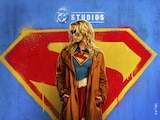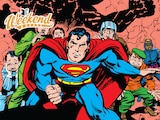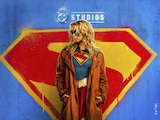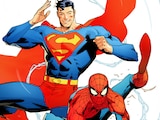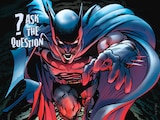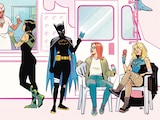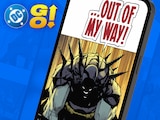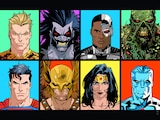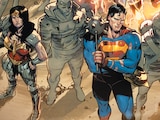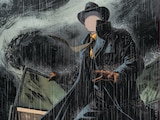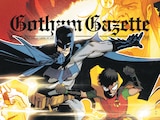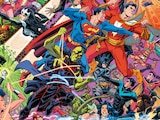Ever since she debuted on Batman: The Animated Series in 1992, Harley Quinn has been a disruptor. Since then, she’s been explored in all of her complexities in comics, television and film—most recently with Lady Gaga’s performance as Lee Quinzel in Joker: Folie À Deux. In true Harley fashion, Lady Gaga’s iteration of the character demands that you leave your expectations at the door, as she subverts key elements of Joker and Harley Quinn’s relationship.
As was shown in Batman: The Animated Series, and later unpacked in the “Mad Love” episode of The New Batman Adventures, Harley and the Joker don’t have a particularly healthy relationship. He manipulates her, a brilliant psychiatrist, and so much of Harley Quinn’s journey since then has been about her finding who she is beyond the men in her life.

Joker: Folie À Deux complicates the relationship dynamic of Harley and Joker. The film bucks the traditional depiction of the Joker as a symbol of chaos by reenvisioning Harley in this position. In one scene in Arkham, Gaga’s Lee gets up during a movie screening and nonchalantly lights a cigarette in the back of the room. But before she returns to her seat, she lights the entire matchbox and tosses it into a grand piano. Arthur finds this aspect about Harley thrilling, and we too are drawn into this daring side of her.
However, as the film progresses, and Arthur comes to terms with whether or not his Joker persona is a genuine expression of who he is, it becomes more and more clear that Lee is manipulating Arthur. Instead of Joker being the driver of their relationship, it’s Harley. Harley shows immense bravado to the press in Gotham City and refutes Arthur’s lawyer’s claims that he is sick.
Lady Gaga captures this arc for Harley Quinn with empathy and a commitment to nuance.
“I did know that I wanted to create a tension between her being assertive and always very afraid,” Gaga shares, “Because I always believed that there was a piece of her that, while she appeared fearless, was actually terrified.”

This helps to give Gaga’s Harley a sense of groundedness because it complicates her actions as she manipulates Arthur. Unlike the Joker from the comics and earlier animated series, it isn’t difficult to feel empathy towards Lee and to understand her motives in Folie À Deux, even when she hurts Arthur.
Lady Gaga’s performance as Harley Quinn also has a haunting quality to it that feels completely new for the character. In preparation for the role, Gaga says, “I watched some amazing films of incredible performances by women that were struggling or different. I also studied the Manson girls, the women that followed Charles Manson, and there was this innocence that was eerie, and a childlike thing that was taking place that I thought was extremely unsettling.”
There’s both a sense of authenticity and danger to Lee’s fanaticism in the film. Over the course of Folie À Deux, we see those layers peeled back, subverting the harmful dynamic at the center of Harley and Joker’s relationship that we’re so used to seeing. This time, it isn’t Joker who should be feared—it’s Harley.

Joker: Folie À Deux imbues the Harley Quinn character with a sense of assertiveness as she develops a relationship with the Joker. Instead of making her passively drawn into the Joker’s sense of danger, Lee actively pursues him. At the end of the day, Lee and Arthur’s relationship is still harmful, but it echoes key themes from Batman comics. Just like Batman himself, Arthur is valued by others like Harley because of his ability to be transformed into a symbol as Joker. Ultimately, at the end of the day, Lee cares more about the Joker than she does about Arthur, reflecting the immense impact Joker has had on Gotham City.
The world of DC is rife with complicated women like Harley Quinn who embody the oft-quoted meme of “I support women’s rights, but more importantly, I support women’s wrongs.” Harley isn’t interesting because she’s a perfect person. She’s compelling because of how human she is. Because while she has a manipulative streak, there’s a palpable sense of fear beneath it that we can all empathize with. At the end of the day, she’s a young person feeling very lost about her own identity, and that journey has led her down a dark path. Because of this, she feels right at home with the imperfection of Gotham City.
Joker: Folie À Deux, directed by Todd Phillips and starring Joaquin Phoenix and Lady Gaga, is in theaters this Friday, October 4th. Click here for tickets and showtimes.
Jules Chin Greene writes about comics, TV, games and film for DC.com, and his work can also be found at Nerdist, Popverse and Multiverse of Color. You can follow him on Twitter and Bluesky at @JulesChinGreene.
NOTE: The views and opinions expressed in this feature are solely those of Jules Chin Greene and do not necessarily reflect those of DC or Warner Bros. Discovery, nor should they be read as confirmation or denial of future DC plans.

